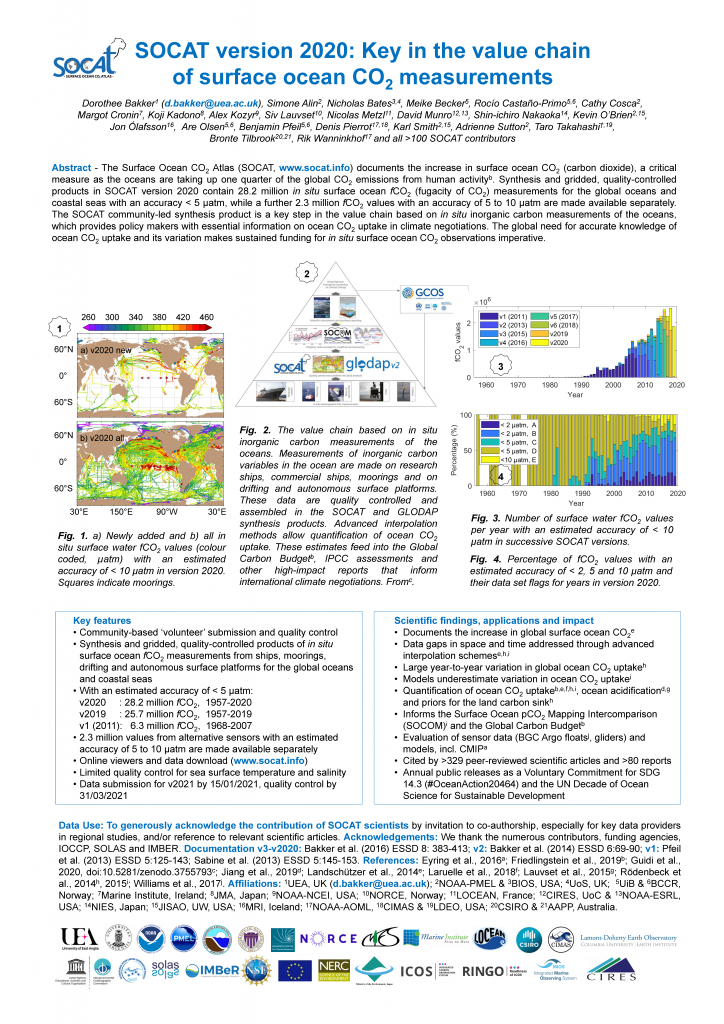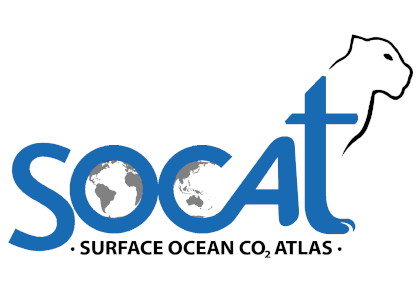SOCATv2020 is available now via www.socat.info!
SOCAT version 2020 contains 28.2 million in situ surface ocean fCO2 (fugacity of CO2) measurements for the global ocean and coastal seas with an accuracy < 5 μatm, while a further 2.3 million fCO2 values with an accuracy of 5 to 10 μatm are made available separately. The Surface Ocean CO2 Atlas (www.socat.info) documents the increase in surface ocean CO2 (carbon dioxide), a critical measure as the oceans are taking up one quarter of the global CO2 emissions from human activity. The SOCAT community-led synthesis product is a key step in the value chain based on in situ inorganic carbon measurements of the oceans, which provides policy makers with essential information on ocean CO2 uptake in climate negotiations. The global need for accurate knowledge of ocean CO2 uptake and its variation makes sustained funding for in situ surface ocean CO2 observations imperative. The annual SOCAT release is a Voluntary Commitment for SDG 14.3 (#OceanAction20464) and contributes to the UN Decade of Ocean Science for Sustainable Development.
A massive thank you to everyone who has contributed to the timely, annual release of SOCATv2020!






